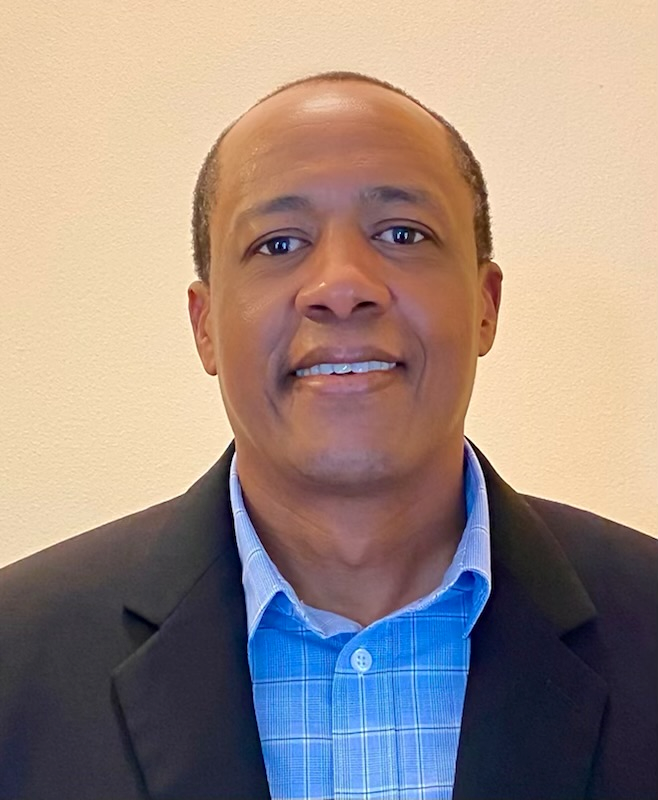Walter Suza guest column: Affirmative action existed before enslaved Africans were free
“Why does everything have to be about race?”
That’s a typical question from racism deniers. I understand that asking is their First Amendment right. Still, I must say, in America, everything is about race.
That's because America still struggles with what Black philosophers such as W.E.B. Du Bois referred to as “the race problem,” which included America’s “failures to enact the ideal of incorporating” Black people “into the group life of the American people.”
I think of “group life of the American people” as their embracing a true equality, which is still a dream too far away for too many people. Anti-Black racism exacerbates the “race problem” in America and perpetuates inequality even beyond its borders.
I believe a solution to anti-Black racism would be a catalyst for dismantling all forms of inequality in the world.
Even though affirmative action was just a small part of the solution for anti-Black racism, it still was seen as a problem by some. Before affirmative action in collegiate admissions was guillotined by conservative Supreme Court justices this year, it was already dead in Idaho, Arizona, Florida, Nebraska, New Hampshire, Oklahoma, Washington, California, and Michigan. As a result, in California, thousands of qualified underrepresented students decided not to apply to the University of California system.
Affirmative action died despite its role in giving qualified marginalized American youth a chance to express their gifts and abilities. Former U.S. First Lady Michelle Obama, a graduate of Princeton and Harvard who benefited from affirmative action, wrote in response to the Supreme Court’s decision: “My heart breaks for any young person out there who’s wondering what their future holds.”
“There can be no keener revelation of a society's soul than the way in which it treats its children,” said Nelson Mandela.
Children are the future, and the way the United States treats its children still depends on race.
According to the U.S. Department of Health and Human Services, the likelihood of a child dying before his or her first birthday is 2.4 times greater for non-Hispanic Black people than non-Hispanic white people. The poor health outcomes for Black children are exacerbated by poverty.
A 2019 report by the U.S. Census Bureau shows that, despite a decline in the national poverty rate, “Blacks represented 13.2% of the total population in the United States, but 23.8% of the population in poverty. Whereas, Non-Hispanic Whites made up 59.9% of the total population but only 41.6% of the population in poverty.”
Why? Race.
If a Black child grows beyond her or his first birthday, the likelihood the child will attend a segregated school is five times that for a white child, according to the Economic Policy Institute. What’s the future of a kid who attends an underfunded school? What’s the future of a community with under-educated kids?
Martin Luther King Jr. wrote in “A Testament of Hope”: “White America must recognize that justice for Black people cannot be achieved without radical changes in the structure of our society.”
The structure of America’s society is still chained to the enslavement of Africans. Slave labor and proceeds from slavery benefited academic institutions such as Yale, Princeton and Harvard. What merit granted America’s elite universities the right to leverage wealth from slavery? Wasn’t affirmative action a way for these universities to repair harms from slavery?
Yet the issue is more than reparations by the Ivies. Education is power, and the Ivy League universities gave America plenty of it. Together, Yale, Princeton and Harvard produced 15 U.S. presidents. One of the presidents was Black. That’s power to Black people, which apparently is not what some in America want.
In 1961 President John F. Kennedy signed an executive order directing federal contractors to “take affirmative action to ensure that applicants are employed, and that employees are treated during employment, without regard to their race, creed, color or national origin.” This was followed by President Lyndon Baines Johnson’s 1965 executive order to give “the Secretary of Labor … strong enforcement authority, with the responsibility of ensuring equal opportunity for minorities in federal contractors’ recruitment, hiring, training and other employment practices.” LBJ amended the order in 1967 to ensure equal opportunity for women also.
But affirmative action was alive even before JFK and LBJ.
During slavery, only white people, and especially white men, had unrestricted access to formal education. For 246 years.
In 1862, President Abraham Lincoln signed the Homestead Act to give American families 160 acres of land. Only white people qualified because enslaved Africans and Native and Indigenous people were not considered citizens.
And to be bitter about equal opportunity for Black people to attend elite white schools?
Some are truly more equal than others.
In his op-ed in The New York Times, Randall Kennedy, a professor at Harvard Law School, writes why some oppose affirmative action. “One of the reasons that has long been on conspicuous display is malign resentment at the sight of Black people getting ahead.”
That’s about it. Race.

Walter Suza of Ames, Iowa, writes frequently on the intersections of spirituality, anti-racism and social justice. He can be contacted at wsuza2020@gmail.com.
This article originally appeared on Des Moines Register: Opinion: Affirmative action existed before enslaved Africans were free

